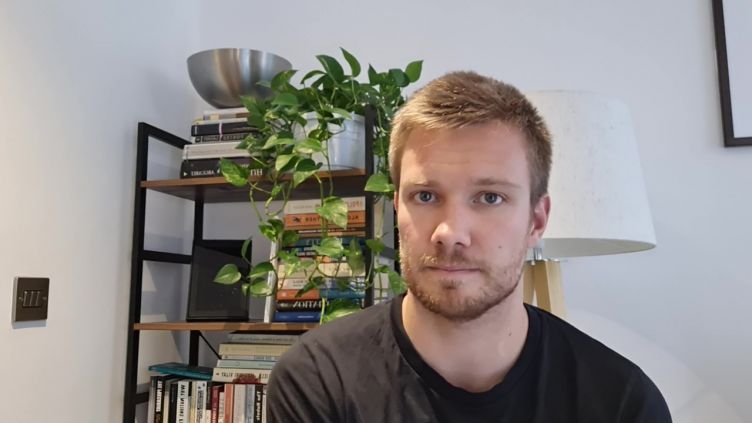You've just got to put yourself in the path of interesting opportunities as often as you possibly can

A transcript of the video:
I'm Adam Hawksbee. I'm the Head of Policy at the West Midlands combined authority.
I chose Sheffield and to study history and politics at Sheffield. And I chose my subject because I've always been interested in current affairs and what's happening in the news, but also why that's happening, what the process was that got us there what are some of the trends and circumstances, so history and politics was always a really natural fit for me. And I chose Sheffield just because I visited the city for an open day and I fell in love with it. I had friends that have gone in previous years. I knew what the nightlife was like, what the pubs were like. What the food was like and actually that was a big part of moving. I'm a big fan of cities. And so being somewhere like Sheffield is big enough to have that diversity was small enough that you can kind of know most of it or know your way around. Most of it was a big appeal to me.
I chose to work in local government or ended up working in local government. Via a slightly odd route. So I did loads of different jobs after I graduated. I worked for charity doing afterschool clubs in areas of high child poverty. I worked in central governments. I worked for an arm of government that looks, at failure and complaints in public services. But then I went off and did a Master's in the US, did a master's in public policy. And it was there that I kind of crystallised my love for cities, and, for kind of dense urban environments into what I wanted to do for a job. And so I knew when I came back from the US, I wanted to work in a big city. And the job came up in the West Midlands, being based in Birmingham. And I've absolutely loved it. Discovering a new city. I grew up in London, so it's been really nice to work and live and explore somewhere new.
The skills and experiences from my undergrad degree. So from history and politics, that really helped me out. Probably two main things. One is the ability to take in lots of diverse information, also big kind of long essays, reports, et cetera, books, and distil out what the key information is. So to rapidly look through 20-30 sources and say, what are the two to three things that are most important here. And the second is making an argument. So after you've got that information, you've gone through the evidence. How do I frame an argument? How do I make my case in a persuasive way? And when I'm giving advice up to politicians or to senior officials, or trying to make the case for further devolution to central government. Those sorts of skills. Are enormously helpful and definitely came from the work I did at Sheffield.
In terms of the responsibilities of my current role. So kind of fall into two big brackets. The first one is a lot of government engagement. So around big fiscal events, spending reviews, budgets, it's my job to make the case for what the West Midlands needs in order to improve the lives of the population. And then also, I got a job around developing new and innovative policies and programmes. So where we might see a new opportunity to leverage private sector investment, to reform public services or to do something differently. I'm often the person that gets together, the relevant officials, experts, academics to work up that new idea and to articulate it for the first time.
In terms of what I enjoy and some of the challenges of my job. So really they're one and the same. It's the scale and the complexity of some of the work that we're doing. So on a good day. That's amazing because I can dive into a completely new topic. I've done work recently on, on food poverty, on footfall in city centres, on transport innovation around E-scooters. And I can go into a completely new area and immerse myself in all of the complexity of the challenges and the difficulty. But then the other side of that is sometimes that complexity is quite a lot and it's difficult because you can't just cut through very neatly. I've got friends that work in parts of the other parts of the public sector or the private sector where they've got a narrower responsibility. They can pretty simply become an expert in one particular thing and move it forward. And because of the geographical scale, of the region, the extent of some of the challenges, the variety of the opportunities it's really difficult for me to do that sometimes.
My advice to current students would be to constantly make decisions that put you in new situations or give you the opportunity to try new things, or meet new people. So always say yes to a coffee if you see a lecture that you like, always email that person afterwards saying can we grab a quick drink, have a conversation. Always read the interesting pamphlet or report. Always stay at the pub, chatting to someone if you think their work sounds interesting and ask a bunch of questions. Because it is impossible to plan your career path. It's impossible to work out exactly what you want to do next. So you've just got to put yourself in the path of interesting opportunities as often as you possibly can. I think that's just about getting out there and asking as many questions as you possibly can. Because that's the only way you find out about new things, interesting things. And get yourself ahead.

